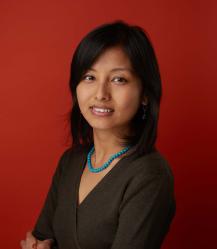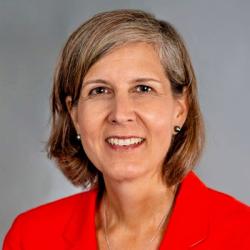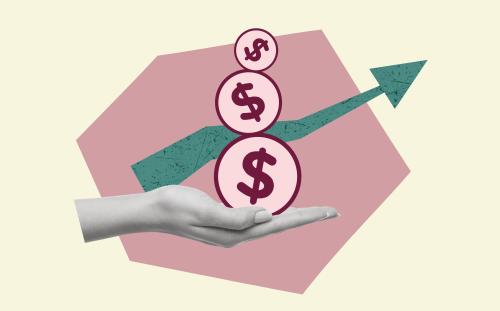

10:00 am EDT - 11:15 am EDT
Past Event
At a launch event on July 8 for the report, “Making gender financing more transparent”, prominent stakeholders, including key donors for gender equality and the Organisation for Economic Cooperation and Development (OECD), made important commitments to make international funding towards gender equality more transparent.
In his welcoming remarks, George Ingram, Senior Fellow at the Brookings Institution, reflected on the recent G-7 statement that robust data is a prerequisite for making progress towards gender equality—a statement that is especially relevant in the context of the $40 billion pledge to promote gender equality at the recent Generation Equality Forum (GEF).
Sally Paxton, US Representative to Publish What You Fund, highlighted the key findings and recommendations of the report—that despite great efforts made by donors and data platforms, it remains difficult to find detailed information about official development assistance (ODA) funding for gender equality programs, and even harder to track humanitarian, philanthropic, and development finance institution (DFI) gender-related funding. The report offers clear and actionable recommendations for donors and data platforms to address three key and interrelated issues: data capacity, data engagement, and data quality.
Gender data on both financing and programming is a critical foundation for progress. With it, we can track, coordinate, reallocate and learn what’s working and what’s not, and we can hold donors to account. But we need to improve this foundation.
– Sally Paxton, Publish What You Fund
The panel discussion included six gender equality and data experts from a range of organizations and perspectives, including: Louise Holt, Director General, Global Affairs Canada (GAC), Michele Sumilas, Assistant to the Administrator at Policy, Planning and Learning at United States Agency for International Development (USAID), Marijn Wiersma, Interim Gender Lead, CDC Group and 2X Challenge member, Tenzin Dolker, Resourcing Feminist Movements Coordinator, Association for Women’s Rights in Development (AWID), Amanda Austin, Head of Policy and Advocacy, Equal Measures 2030, and Lisa Williams, Team Lead and Senior Policy Analyst for OECD’s Gender Equality and Women’s Empowerment.
The panel covered a number of issues, ranging from how to best track G-7 and GEF commitments to the need to empower local gender advocates with useable and accessible data to the lack of core funding to feminist and local groups. Most significantly, there were a series of plans and commitments announced, enumerated below, in connection with the G-7 or GEF and in response to key findings and recommendations in the report.
GAC. Canada has been a strong supporter of gender equality and the findings in the research about their data quality reflect that commitment. Despite the strong track record, Holt recognized that there are always ways to improve, including:
USAID. The new Biden-Harris administration has established gender equity as a top priority across the whole of the government, both domestic and global. Included in new U.S. plans are:
OECD. The OECD-Development Assistance Committee (DAC) gender equality policy marker is the most evolved and highly used of all gender markers across various data platforms. Williams focused on the various ways in which the OECD is working to improve how a number of organizations can improve gender equality financing. Williams highlighted that:
2X Challenge and the CDC Group. The 2X Challenge was originally launched at the G-7 in 2017 with Canada as the host. The drive behind the 2X Challenge is to mobilize private sector investments in gender as defined by four clear criteria. Big commitments have been made over the years—at the G-7 this year, for example, the 2X Challenge committed $15 billion for gender equality over the next two years. As Wiersma stated, one of the key challenges is how to better share information on investments externally. Wiersma shared that:
Funders should also be truly accountable to feminist movements who ensure that demands for gender equality are transformative, intersectional … being transparent is not just sharing information but truly sharing power—letting go and compromising.
– Tenzin Dolker, AWID
Equal Measures 2030. This partnership works across a range of actors around the value of data to address gender inequalities. Austin stressed that better outcomes and accountability means better engagement around the data, most notably with those whom these gender efforts are trying to help. To that end:
All of these plans and commitments from these key gender equality stakeholders signal an important move in the right direction toward a more transparent and open gender financing data ecosystem. There are already significant commitments on the need to elevate gender equality work. The panelists underscored the need for the resources, capacity, and technical improvements to make data a strong foundation toward meeting Sustainable Development Goal 5: Achieve gender equality and empower all women and girls, but the political will to make these gender investments effective and sustainable is essential. Top among political will priorities is the empowerment of local and women’s rights organizations—not just in the data but in the decisions around priorities, implementation, and results.
Moderator
Panelist




Landry Signé
February 20, 2026

Caren Grown, Kendall Trelegan
February 3, 2026

January 15, 2026